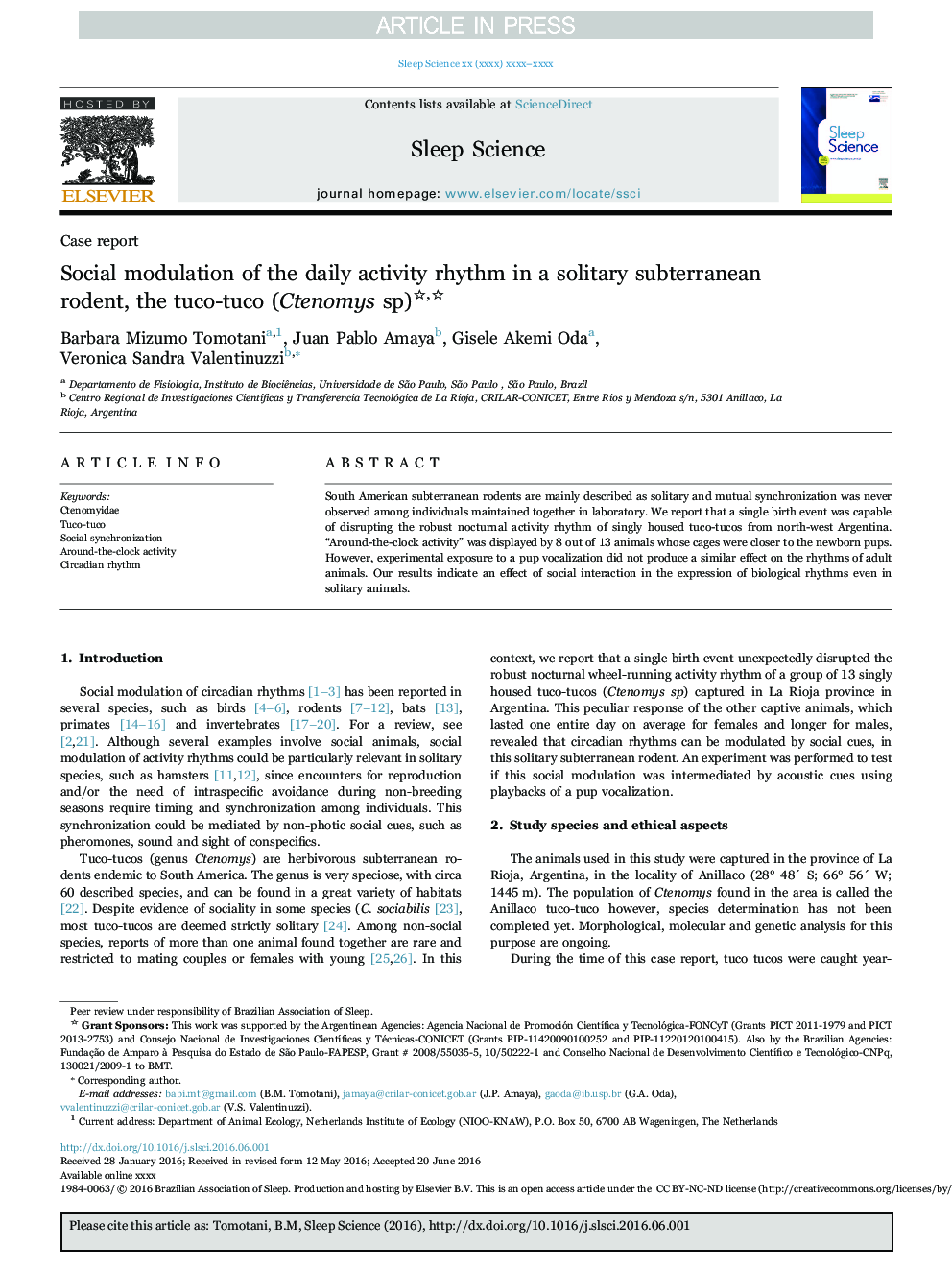| Article ID | Journal | Published Year | Pages | File Type |
|---|---|---|---|---|
| 8679247 | Sleep Science | 2016 | 5 Pages |
Abstract
South American subterranean rodents are mainly described as solitary and mutual synchronization was never observed among individuals maintained together in laboratory. We report that a single birth event was capable of disrupting the robust nocturnal activity rhythm of singly housed tuco-tucos from north-west Argentina. “Around-the-clock activity” was displayed by 8 out of 13 animals whose cages were closer to the newborn pups. However, experimental exposure to a pup vocalization did not produce a similar effect on the rhythms of adult animals. Our results indicate an effect of social interaction in the expression of biological rhythms even in solitary animals.
Keywords
Related Topics
Life Sciences
Neuroscience
Behavioral Neuroscience
Authors
Barbara Mizumo Tomotani, Juan Pablo Amaya, Gisele Akemi Oda, Veronica Sandra Valentinuzzi,
